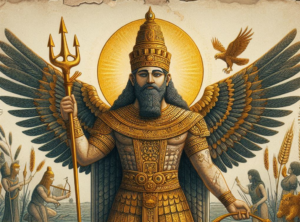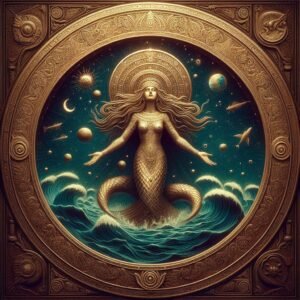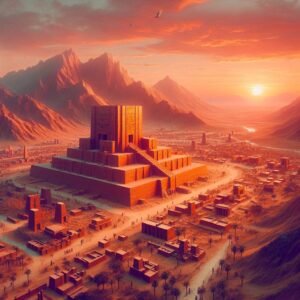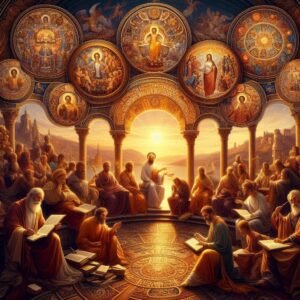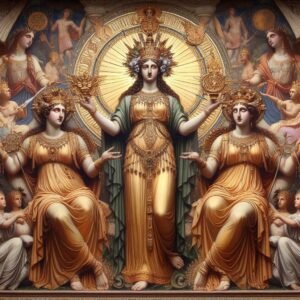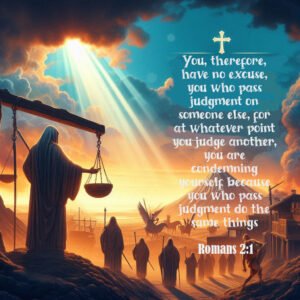Ninurta is an ancient Mesopotamian god associated with agriculture, healing, hunting, law, scribes, and war. Initially worshipped in early Sumer, he was known as a god of farming and healing, who protected people from sickness and demons.
Category: Spirituality
A category for spiritual posts
Permanent link to this article: https://truthofself.com/the-god-ninurta/
Jul 13
The Goddess Ereshkigal
Ereshkigal is a prominent figure in Mesopotamian mythology, known as the goddess of the underworld. Her name translates to “Queen of the Great Earth” or “Lady of the Great Place.” She rules over the land of the dead, often referred to as Kur or Irkalla, and is responsible for keeping the dead within her realm and preventing the living from entering.
Permanent link to this article: https://truthofself.com/the-goddess-ereshkigal/
Jul 13
The Igigi lesser gods
The term “Igigi” refers to a group of mythological figures in Mesopotamian mythology. They are often considered the younger gods who served the Anunnaki, the major deities. According to the Atrahasis myth, the Igigi were tasked with laborious work for the Anunnaki until they eventually rebelled due to the harsh conditions.
Permanent link to this article: https://truthofself.com/the-igigi-lesser-gods/
Jul 13
The God Nergal
Nergal, also known as Erra, was a prominent deity in Mesopotamian mythology, revered as the god of war, death, and disease. He was associated with the underworld and often depicted as a fierce and destructive force. Nergal’s primary cult centre was the city of Kutha, where he was worshipped as the ruler of the underworld.
Permanent link to this article: https://truthofself.com/the-god-nergal/
Jul 13
The Goddess Ninhursag
Ninhursag, also known as Ninmah, Damgalnuna, Nintu, Belet-Ili, Shassuru, and Damkina or Ninursag, was an ancient Sumerian mother goddess associated with fertility, mountains, and the creation of life. She was one of the seven great deities of Sumer and was often depicted as a nurturing figure, symbolizing the earth and its ability to produce life.
Permanent link to this article: https://truthofself.com/the-goddess-ninhursag/
Jul 12
The God Enlil
Permanent link to this article: https://truthofself.com/the-god-enlil/
Jul 12
The Epic of Gilgamesh
Gilgamesh, the legendary king of Uruk, is a towering figure in ancient Mesopotamian mythology and is best known as the protagonist of the Epic of Gilgamesh, one of the oldest surviving works of literature. According to the Sumerian King List, Gilgamesh was the fifth king of Uruk and reigned in the early part of the Early Dynastic II period (circa 2700 BCE).
Permanent link to this article: https://truthofself.com/the-epic-of-gilgamesh/
Jul 12
The Sumerian cosmology
The Sumerian cosmology is a fascinating blend of mythology and early scientific thought. The Sumerians envisioned the universe as a closed dome surrounded by a primordial saltwater sea. The earth was seen as a flat disc beneath this dome, with an underworld and a freshwater ocean called the Abzu beneath it.
Permanent link to this article: https://truthofself.com/the-sumerian-cosmology/
Jul 12
The Goddess Ishtar
Ishtar, known as Inanna in Sumerian, is a deity of profound complexity and significance in Mesopotamian mythology, embodying the dualities of existence such as love and war, fertility and desolation. Her worship spanned across the ancient Near East, marking her as one of the most venerated figures in early human civilization
Permanent link to this article: https://truthofself.com/the-goddess-ishtar/
Jul 12
The Goddess Nammu
Nammu is a primordial goddess in Sumerian mythology, often associated with the creation of the universe and humanity. She embodies the primeval waters, an elemental force from which life and the pantheon of gods emerged. As a creator deity, Nammu’s role is pivotal in the cosmogony of Mesopotamian belief systems, where she is revered as the mother who gave birth to the major deities, including Enki, the god of wisdom, water, and creation.
Permanent link to this article: https://truthofself.com/the-goddess-nammu/
Jul 12
The God Enki
Permanent link to this article: https://truthofself.com/the-god-enki/
Jul 12
The God Anu
Permanent link to this article: https://truthofself.com/the-god-anu/
Jul 12
The Citadel of Erbil
Permanent link to this article: https://truthofself.com/the-citadel-of-erbil/
Jul 12
The Geography of Sumeria
Permanent link to this article: https://truthofself.com/the-geography-of-sumeria/
Jul 12
The Sumerian City of Uruk
Permanent link to this article: https://truthofself.com/the-sumerian-city-of-uruk/
Permanent link to this article: https://truthofself.com/the-beliefs-of-ancient-mesopotamia/
Jul 07
Syncretism in early Christianity
This article explains how the syncretism observed in early Christianity, where elements of Roman, Hellenistic and other religions were integrated into Christian practices, means that in many Christian places of worship, traces of earlier, pagan beliefs can be found, and that many churches and local Christian customs are directly connected to those earlier beliefs.
Permanent link to this article: https://truthofself.com/syncretism-in-early-christianity/
Permanent link to this article: https://truthofself.com/continuity-of-custom-in-spiritual-and-religious-practices/
Jul 06
Syncretism
Permanent link to this article: https://truthofself.com/syncretism/
Jul 01
Judgement and the God of the Bible
In Christianity, the concept that judgment belongs to God alone is rooted in the belief that only God possesses the perfect wisdom and justice required to judge human actions and intentions fairly. This idea is supported by various scriptural references which suggest that while humans can make judgments about behaviour and actions, ultimate judgment is reserved for God.
Permanent link to this article: https://truthofself.com/judgement-and-the-god-of-the-bible/

